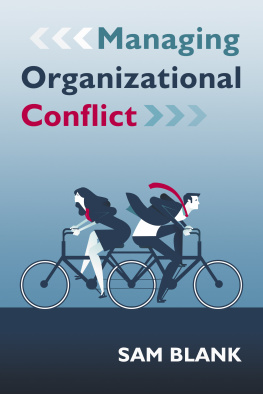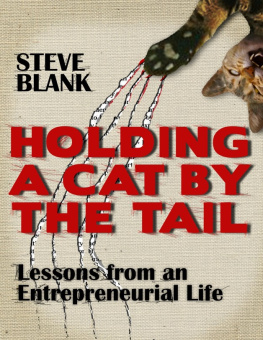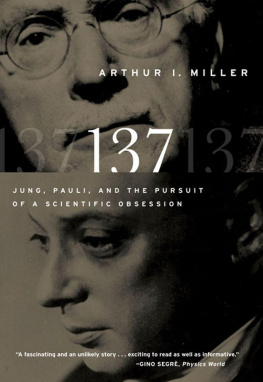Arthur M. Blank - Good Company
Here you can read online Arthur M. Blank - Good Company full text of the book (entire story) in english for free. Download pdf and epub, get meaning, cover and reviews about this ebook. year: 2020, publisher: William Morrow, genre: Home and family. Description of the work, (preface) as well as reviews are available. Best literature library LitArk.com created for fans of good reading and offers a wide selection of genres:
Romance novel
Science fiction
Adventure
Detective
Science
History
Home and family
Prose
Art
Politics
Computer
Non-fiction
Religion
Business
Children
Humor
Choose a favorite category and find really read worthwhile books. Enjoy immersion in the world of imagination, feel the emotions of the characters or learn something new for yourself, make an fascinating discovery.
- Book:Good Company
- Author:
- Publisher:William Morrow
- Genre:
- Year:2020
- Rating:5 / 5
- Favourites:Add to favourites
- Your mark:
- 100
- 1
- 2
- 3
- 4
- 5
Good Company: summary, description and annotation
We offer to read an annotation, description, summary or preface (depends on what the author of the book "Good Company" wrote himself). If you haven't found the necessary information about the book — write in the comments, we will try to find it.
Good Company — read online for free the complete book (whole text) full work
Below is the text of the book, divided by pages. System saving the place of the last page read, allows you to conveniently read the book "Good Company" online for free, without having to search again every time where you left off. Put a bookmark, and you can go to the page where you finished reading at any time.
Font size:
Interval:
Bookmark:
Contents
To my family, and to the innumerable associates, past and present, who have brought these core values to life, inspiring and humbling me every step of the way.
To those who will read this book. May you lead with humility and laser-focus on building values-driven organizations that make the world a better place for all.
Contents
By trade, I am a carpenter and have worn a tool belt since the age of twelve. When I was a child growing up in an isolated peanut farming community, an occasional trip to the town hardware store with my father was a memorable adventure. In 1998, Rosalynn and I decided to renovate our kitchen, which had remained as it was since we first built our home in Plains, Georgia, some forty years previously. When the first Home Depot stores opened in Atlanta, it was an American craftsmans dream come true. I spent hours wandering the aisles, admiring bins of 16-penny nails and drill bits. When it came time to renovate our kitchen, we inquired about cabinetry. It was then that the store arranged for us to meet the owners, Arthur Blank and Bernie Marcus. Arthurs wife at that time, Stephanie, was a Home Depot designer and drew up the plans for the remodel. Arthur and I were brought together over kitchen accessories, but it soon became apparent that we had much more in common.
We both came from humble beginnings: I from rural Georgia; he from Sunnyside, Queens. We grew up with healers in our household: my mother, Lillian, a nurse; and his father, Max, a pharmacist. Our mothers were both dedicated community volunteers. We were raised in environments in which the foundation and highest spiritual essences of our Christian and Jewish faiths were valued over stigma and religious dogma. We were taught to exercise diplomacy to avoid conflict. What I have observed over two decades and now find most salient about Arthur is his sincerity, his integrity, and his relentless dedication to living his values. In a world often fixated on the quantification of things, Arthur effortlessly integrates that which cannot be counted into his life and work. Arthur knows what all servant leaders know: our communities are the bedrock of our country.
I long have been a Falcons fan, and while Ive been thrilled to watch the team rise from mediocrity to become Super Bowl contenders, Ive found it yet more exciting to watch an extremely successful American businessman maintain himself as a man of the people rather than as a sports oligarch on high.
The issues Arthur holds dear are central to me and to the Carter Centerhealth; peace and conflict resolution; the eradication of poverty; equality; and social justice. Arthurs philanthropic aims are grand within his own neighborhood, the city of Atlanta, the state of Georgia, and beyond. It is for this reason that hes sat on our board for the past twenty-five years and that weve asked him to help us with succession planning and to ensure the continuation of our work beyond our lifetimes.
The growing chasm between rich and poor is one of our nations biggest challenges. There is no way to separate this from the basic rights of food, health, security, and human dignity. The work of the Arthur M. Blank Family Foundation on Atlantas historic Westside is perhaps the greatest example in the American Southmaybe even in all of Americaof a meaningful effort to bridge a daunting socioeconomic chasm. Witnessing the positive economic and social change hes set in motion in his own backyardwhich happens to be the birthplace of our nations civil rights movementhas given me hope that as a country well return to an understanding of what service and leadership truly mean.
I have faith in humanity because I know people like my friend Arthur Blank, people who see things that require attention, hard work, collaboration, and mindfulness and who have the passion to keep participating in ways that are truly helpful and supportive; people who represent the highest ideals of being a servant leader.
People have asked of Arthur and me: When does the work end for you? The answer is: it doesnt. The work is just beginning. We all are presented with the choice to mend the world, to bring it one step closer toward a harmonious state of being. I invite you to take note of the story of this fine American who chose to do just that.
President Jimmy Carter
Plains, Georgia
March 2020
One of the unexpected benefits of being a successful business leader in the later stages of life is that I get to go back to school. Not as a student (although I do consider every visit a learning opportunity) but as a speaker. Im regularly invited to business school campuses to address aspiring entrepreneurs and future executives about what Ive learned in my many decades building values-based companies. I consider this a great privilege. The young people I meet during these visits strike me as deeply thoughtful, motivated, and creative, and I always leave feeling encouraged that they are about to step into our countrys offices and boardrooms.
They also strike me as worried and frustrated. Theyre keenly aware of the challenges facing our environment; the gaps in wealth and opportunity; the gender-wage discrepancy; the persistent discrimination faced by minorities both in the workplace and outside; and the numerous examples of corporate misconduct. I have college-aged children of my own, and I hear the same concerns around the dinner table. Theyre searching for better solutions, new approaches, fresh answers. If theres one question I hear above all others from the business school students I meet, its this: Does my choice to pursue a career in business conflict with my need for meaning and purpose and my desire to make a positive difference in the world?
Ill be honestI dont think I was asking such deep or thoughtful questions on the day I walked across the stage in my cap and gown at Babson College in 1963. My demeanor was more carefree, my focus more singular. I had few advantages beyond my own smarts and willingness to work hard, but I was optimistic and full of confidence in my ability to change my own circumstance. Much of this came from my family. My grandparents all came to the United States from Europe with little more than the clothes on their backs, and they made their way in this country however they could. My grandfather used to carry furniture up the stairs for people in his neighborhood in order to earn extra money to supplement the income he made as a fishmonger at the Essex Street Fish Market on New Yorks Lower East Side. My family was living in a one-bedroom apartment in Queens, New York, when my father launched his own pharmaceutical mail-order company at the age of forty. And when he passed away only four years later, my mother, who had no prior business experience, stepped up and took over the company, building it into a thriving million-dollar business while raising my brother and me alone. Inspired by these examples of resilience and resourcefulness, I helped support myself during my college years by launching a landscaping business and a laundry business.
After graduating, I took an accounting job for five years at Arthur Young & Company, before joining the family business. When my mother sold that business to the national conglomerate Daylin Corporation, I stayed with the company and worked my way up, eventually becoming president of their drugstore division while still in my twenties. When that division was sold off, a friend named Bernie Marcus, who worked at another Daylin subsidiary, Handy Dan Home Improvement Centers, hired me as chief financial officer. That was the beginning of one of the most important professional and personal relationships of my life. Bernie, fourteen years my senior, became like both a father and a brother to me. We had an instant rapport.
Bernie has a strong personality, to put it mildly, and he is a great businessman. Our personalities are complementaryhes a natural entertainer and visionary; Im more reserved, cautious, and analytical. To use a baseball analogy, hes the pitcher, the center of attention, while Im the catcher, in the middle of the action and helping set the pace of the game. Weve always brought out the best in each other and have great respect for each others strengths. Unfortunately, the same could not be said of our corporate overlords at Daylin, who wanted to take all the credit for Handy Dans outstanding performance. On April 14, 1978, the growing friction came to a head. Bernie, myself, and another close colleague, Ron Brill, were summoned to a planning meeting at the corporate offices. Upon arrival, we were shuttled into separate rooms, each containing several attorneys, and fired on the spot.
Next pageFont size:
Interval:
Bookmark:
Similar books «Good Company»
Look at similar books to Good Company. We have selected literature similar in name and meaning in the hope of providing readers with more options to find new, interesting, not yet read works.
Discussion, reviews of the book Good Company and just readers' own opinions. Leave your comments, write what you think about the work, its meaning or the main characters. Specify what exactly you liked and what you didn't like, and why you think so.

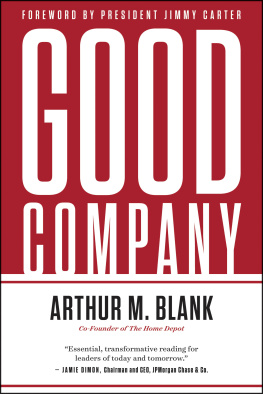

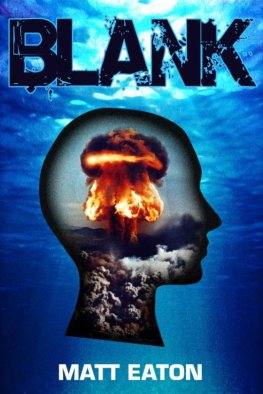
![Alice Birch - [BLANK] (Oberon Modern Plays)](/uploads/posts/book/297160/thumbs/alice-birch-blank-oberon-modern-plays.jpg)


